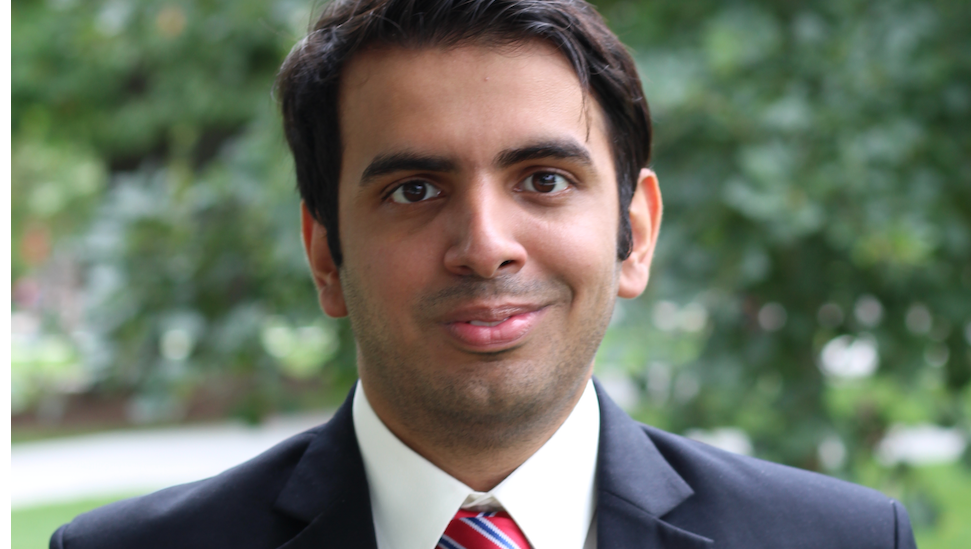Why Should You Think About Getting an MPA? Why Now?

Muhammad Ali Ilahi is a first year CIPA student from Pakistan who is concentrating his studies on International Development. He comes to Cornell with experience in both the public and private sector and plans to develop skills at CIPA that will allow him to move into the development sector when he returns to his country.
Keep reading for some of Muhammad's thoughts on attending CIPA, getting an MPA, and why he finds the International Development concentration so valuable.
I come from Lahore in Pakistan, which is the second largest city in the country with a population of more than 12 million people. I completed my undergraduate studies at Lahore University of Management Sciences with a major in Accounting and Finance, and a minor in Political Science. Since graduating, I have worked both in the corporate and the government sector. I worked for 18 months as an assistant manager marketing in one of the largest textile conglomerates in the country, followed by a 12 month stint with the government as a consultant with the primary and secondary healthcare department, Government of the Punjab. I intend to do a concentration in International Development Studies while at CIPA, as I believe it would help equip me with the necessary skillset required to be a part of the development sector once I go back to Pakistan.
One of the major reasons why I decided to do a master’s in public administration was because it offers me an opportunity to build upon my educational and professional experiences, and combine them together in a manner that would allow me to contribute positively for my country and society at large. The MPA program at CIPA was especially attractive for me, as it allows room for flexibility through the diverse range of concentrations and courses that it offers. A lot of elective and concentration courses overlap, and you have the option to take courses from other schools as well.
One of the most exciting things about CIPA is the diversity it offers, with people coming from all over the world and different parts of the United States; this offers great potential for making a wide range of connections. I have been in the program for a little over a month, but I have had the opportunity to interact and gain understanding about the social, cultural and political aspects of over a dozen countries and nationalities.
The best thing I have liked about Cornell so far is the plethora of activities and opportunities to explore and connect with nature that it offers. In the future, I intend to dedicate a whole blog to the beauty of the campus and its surroundings, and the large range of activities one can be a part of. Just to give you an idea of the things you can do, in just four weeks I have: been to 5 different waterfalls around Ithaca, scaled a 3,500 feet summit in the Catskills, gone apple picking in an orchard, played tennis every Sunday, and tried around half a dozen cuisines! I plan to cover some of these experiences in more detail in future blogs. Until then, Ciao!
If you have questions about attending Cornell University's Institute for Public Affairs, including "is an MPA worth it?", we encourage you to request more information today!


